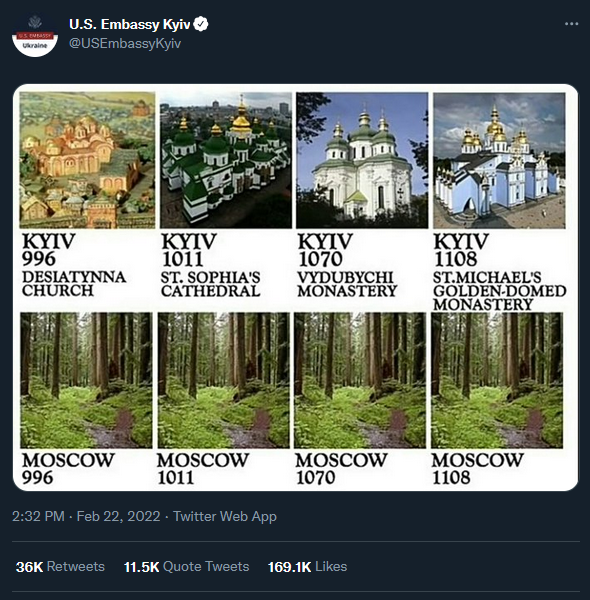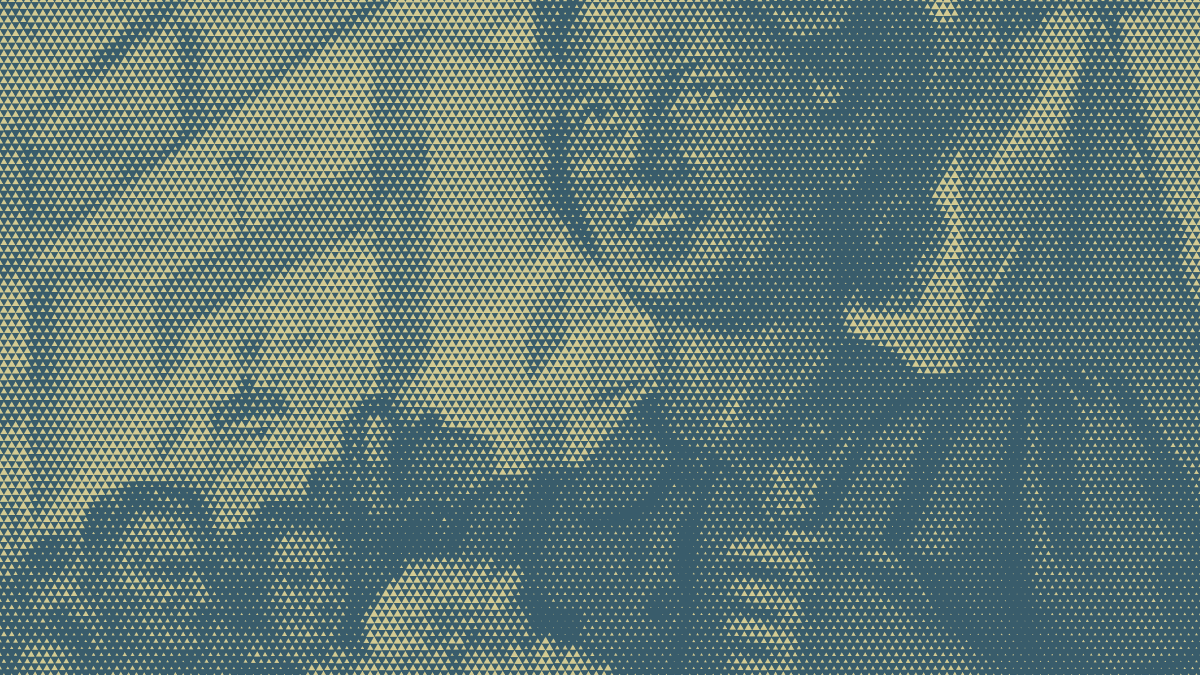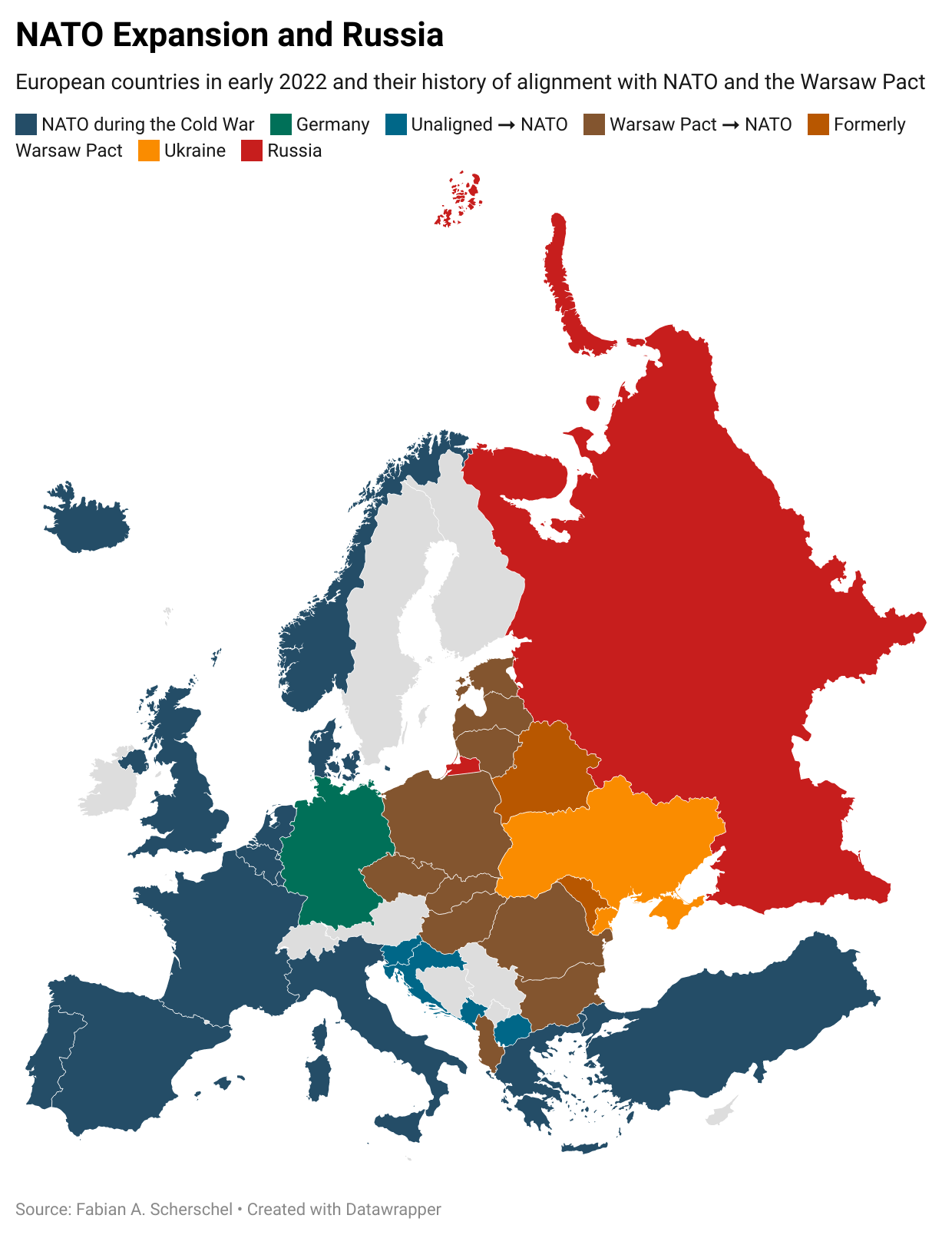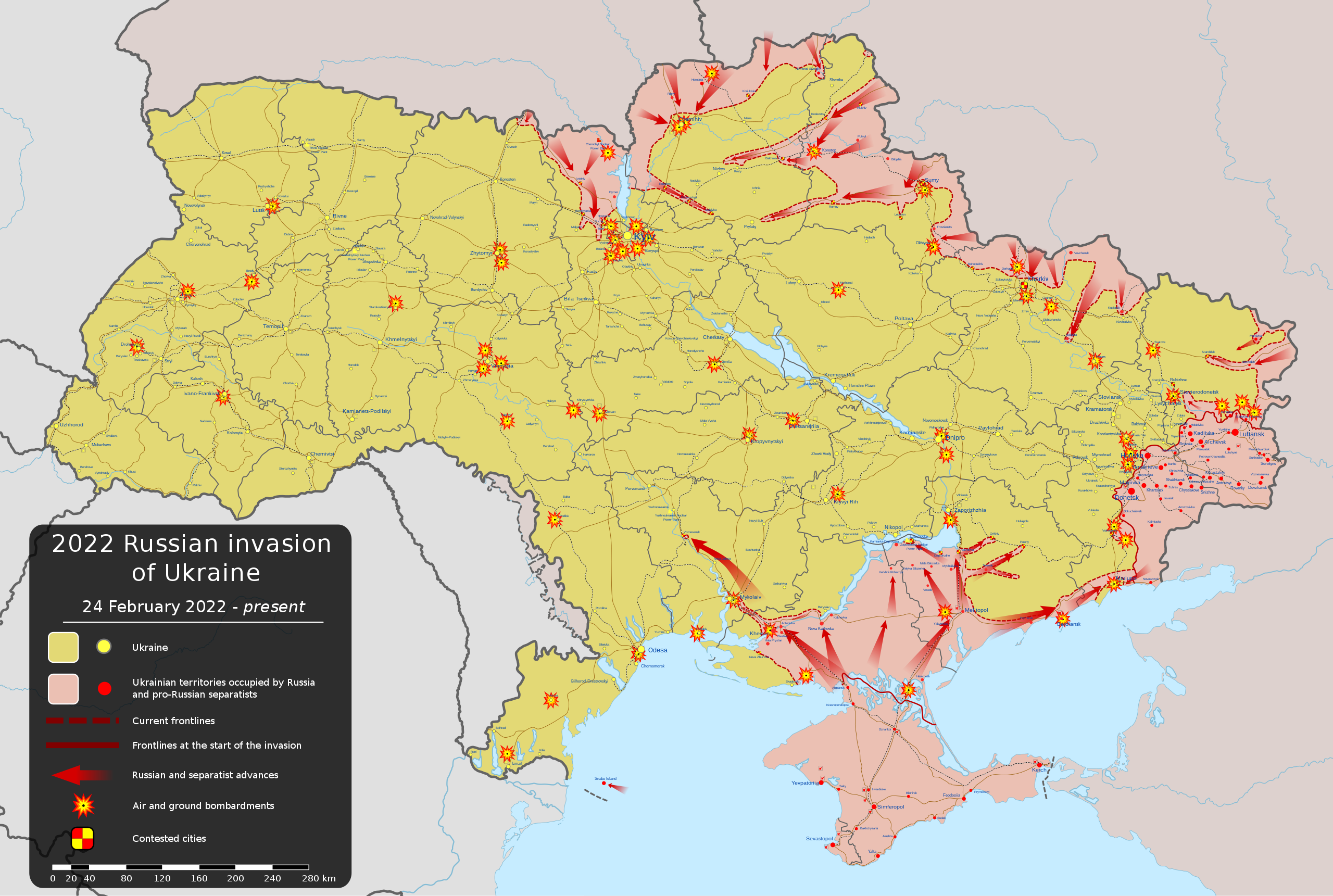The war in Ukraine has been raging for eight years, largely ignored by the West. It is not new. Neither are the policy blunders by NATO and the EU that have led to the current full-scale invasion. Putin is to blame for the war, but the West has created the situation that enabled Putin to wage it.
Apparently, there’s a WAR IN EUROPE!!! going on. So I guess The Private Citizen has no choice but to look at this situation…
 This podcast was recorded with a live audience on my Twitch channel. Details on the time of future recordings can usually be found on my personal website. Recordings of these streams get saved to a YouTube playlist for easy watching on demand after the fact.
This podcast was recorded with a live audience on my Twitch channel. Details on the time of future recordings can usually be found on my personal website. Recordings of these streams get saved to a YouTube playlist for easy watching on demand after the fact.Explaining my Stance on War
Before I will say anything else about the war in Ukraine, I want to make it abundantly clear that I am against all kinds of wars. Anywhere. No matter who wages them or why. I am also against supporting people who wage wars by sending them weapons or money – unconditionally.
Having said that, I’ve also studied history and politics deeply. Which means I am fully aware of the fact that wars are a fact of life and will be, probably forever. As Clausewitz said, quite aptly:
“War is the continuation of politics by other means."
So to understand politics (and by extension history), one has to understand war. Which means you can condemn it – and you should – but you should not be surprised by it. War is not some relic of a bygone age. It is part of the human condition. If we like it or not.
Historic Context
Let’s first look at some historic context here.

Some propaganda from the US government (Source: US embassy in Kiev on Twitter)
Kiev was once the capital of Kievan Rus', which was the basis for the culture of what later became the Russian state.
Kievan Rus' was a loose federation of East Slavic, Baltic, and Finnic peoples in Eastern and Northern Europe from the late 9th to the mid-13th century, under the reign of the Rurik dynasty, founded by the Varangian prince Rurik. The modern nations of Belarus, Russia, and Ukraine all claim Kievan Rus' as their cultural ancestors, with Belarus and Russia deriving their names from it.
Prior to the emergence of Kievan Rus' in the 9th century AD, the lands between the Baltic Sea and Black Sea were primarily populated by eastern Slavic tribes. Controversy persists over whether the Rus' were Varangians or Slavs, with the current scholarly consensus holding that they were an ancestrally Norse people that quickly assimilated into Slavic culture. This uncertainty is due largely to a paucity of contemporary sources. Attempts to address this question instead rely on archaeological evidence, the accounts of foreign observers, and legends and literature from centuries later. To some extent the controversy is related to the foundation myths of modern states in the region.
The gradual disintegration of the Kievan Rus' began in the 11th century, after the death of Yaroslav the Wise. The position of the Grand Prince of Kiev was weakened by the growing influence of regional clans. The state finally disintegrated under the pressure of the Mongol invasion of Rus', fragmenting it into successor principalities who paid tribute to the Golden Horde (the so-called Tatar Yoke). In the late 15th century, the Muscovite Grand Dukes began taking over former Kievan territories and proclaimed themselves the sole legal successors of the Kievan principality according to the protocols of the medieval theory of translatio imperii. On the western periphery, Kievan Rus' was succeeded by the Principality of Galicia-Volhynia. Later, as these territories, now part of modern central Ukraine and Belarus, fell to the Gediminids, the powerful, largely Ruthenized Grand Duchy of Lithuania drew heavily on Rus' cultural and legal traditions. On the north-eastern periphery of Kievan Rus', traditions were adapted in the Vladimir-Suzdal Principality that gradually gravitated towards Moscow. To the very north, the Novgorod and Pskov Feudal Republics were less autocratic than Vladimir-Suzdal-Moscow until they were absorbed by the Grand Duchy of Moscow. Russian historians consider Kievan Rus' the first period of Russian history.
In stark contrast to this, Ukraine as a state only exists since 1917. It tried to win its independence in the Soviet–Ukrainian War (1917 - 1921), but eventually the Bolsheviks won and integrated Ukraine into the USSR, albeit as its own republic.
The end of the war saw the incorporation of most of the territories of Ukraine into the Ukrainian Soviet Socialist Republic which, on December 30, 1922, was one of the founding members of the Union of Soviet Socialist Republics (USSR). Parts of Western Ukraine fell into under the control of the Second Polish Republic, as laid out in the Peace of Riga.
For the next few years the Ukrainian nationalists would continue to try to wage a partisan guerrilla war on the Soviets. They were aided by Polish intelligence (see Prometheism); however they were not successful. The last active Ukrainian movements would be mostly eradicated during the Holodomor.
The modern Ukrainian state is, like Russia, deriving its origins from ancient Kievan Rus'. It was founded in 1991 after the Soviet Union fell.
Geopolitical Context
Ever since the Cold War ended, NATO has been expanding its political influence to countries that were once firmly in the grip of Russia. The aim is clearly to minimise Russia’s sphere of influence in the region and dismantle the ring of buffer states that Stalin engineered under the umbrella of the USSR to protect Russia’s main territories.
When the EU and US supported regime change in Ukraine in 2014 and toppled a duly elected pro-Russian government, Russia responded by seizing Crimea. This started a war that has been going on for the past eight years. The West only noticed this war briefly when Malaysia Airlines Flight 17 was shot down. It has been largely ignoring it ever since.
Until last week when Russia invaded Ukraine for good. Now the war is solely blamed on Vladimir Putin. That the EU and NATO helped created the climate that caused this war has been largely forgotten in the ensuing propaganda storm.
Ted Galen Carpenter explained what got us to this point very well in an opinion piece for 1945:
Russia’s military offensive against Ukraine is an act of aggression that will make already worrisome tensions between NATO and Moscow even more dangerous. The West’s new cold war with Russia has turned hot. Vladimir Putin bears primary responsibility for this latest development, but NATO’s arrogant, tone-deaf policy toward Russia over the past quarter-century deserves a large share as well. Analysts committed to a U.S. foreign policy of realism and restraint have warned for more than a quarter-century that continuing to expand the most powerful military alliance in history toward another major power would not end well. The war in Ukraine provides definitive confirmation that it did not.
“Many Russians see NATO as a vestige of the cold war, inherently directed against their country. They point out that they have disbanded the Warsaw Pact, their military alliance, and ask why the West should not do the same.” It was an excellent question, and neither the Clinton administration nor its successors provided even a remotely convincing answer.
George Kennan, the intellectual father of America’s containment policy during the Cold War, perceptively warned in a May 2, 1998 New York Times interview about what the Senate’s ratification of NATO’s first round of expansion would set in motion. ”I think it is the beginning of a new cold war,” Kennan stated. ”I think the Russians will gradually react quite adversely and it will affect their policies. I think it is a tragic mistake. There was no reason for this whatsoever. No one was threatening anybody else.”
He was right, but U.S. and NATO leaders proceeded with new rounds of expansion, including the provocative step of adding the three Baltic republics. Those countries not only had been part of the Soviet Union, but they had also been part of Russia’s empire during the Czarist era. That wave of expansion now had NATO perched on the border of the Russian Federation.
Moscow’s patience with NATO’s ever more intrusive behavior was wearing thin. The last reasonably friendly warning from Russia that the alliance needed to back off came in March 2007, when Putin addressed the annual Munich Security Conference. “NATO has put its frontline forces on our borders,” Putin complained. NATO expansion “represents a serious provocation that reduces the level of mutual trust. And we have the right to ask: against whom is this expansion intended? And what happened to the assurances our western partners made after the dissolution of the Warsaw Pact?”
As nekr0z points out on the forum, NATO always had common borders with the Warsaw Pact.
The following year, the Kremlin demonstrated that its discontent with NATO’s continuing incursions into Russia’s security zone had moved beyond verbal objections. Moscow exploited a foolish provocation by Georgia’s pro-Western government to launch a military offensive that brought Russian troops to the outskirts of the capital. Thereafter, Russia permanently detached two secessionist-minded Georgian regions and put them under effective Russian control.
Western (especially U.S.) leaders continued to blow through red warning light after a red warning light, however. The Obama administration’s shockingly arrogant meddling in Ukraine’s internal political affairs in 2013 and 2014 to help demonstrators overthrow Ukraine’s elected, pro‐Russia president was the single most brazen provocation, and it caused tensions to spike. Moscow immediately responded by seizing and annexing Crimea, and a new cold war was underway with a vengeance.
Events during the past few months constituted the last chance to avoid a hot war in Eastern Europe. Putin demanded that NATO provide guarantees on several security issues. Specifically, the Kremlin wanted binding assurances that the alliance would reduce the scope of its growing military presence in Eastern Europe and would never offer membership to Ukraine. He backed up those demands with a massive military buildup on Ukraine’s borders. The Biden administration’s response to Russia’s quest for meaningful Western concessions and security guarantees was tepid and evasive. Putin then clearly decided to escalate matters. Washington’s attempt to make Ukraine a NATO political and military pawn (even absent the country’s formal membership in the alliance) may end up costing the Ukrainian people dearly.
History will show that Washington’s treatment of Russia in the decades following the demise of the Soviet Union was a policy blunder of epic proportions. It was entirely predictable that NATO expansion would ultimately lead to a tragic, perhaps violent, breach of relations with Moscow. Perceptive analysts warned of the likely consequences, but those warnings went unheeded. We are now paying the price for the U.S. foreign policy establishment’s myopia and arrogance.
This war, like all wars, is born from a situation created by the actions of several parties. Just like the Treaty of Versailles and its harsh handling of the German state created the situation that made Hitler possible, NATO and the EU are responsible for the situation that let to this war as much as Russia is. They are not responsible for starting the war, but to assume “it’s all Vladimir Putin” like the current propaganda line would suggest would be very naïve.
The Current Situation
After a week of war, the Russian advance seems to have largely stopped. The Russians managed to capture Kherson and Melitopol. Mariupol and Kharkiv are contested. Kiev is under heavy bombardment.
Current state of the war in Ukraine as of 3 March 2022 (Source: Viewsridge, Wikimedia Commons)
→ c.f.: Timeline of the 2022 Russian invasion of Ukraine, Wikipedia
→ c.f.: Modern Russian Tanks, Tank Encyclopedia
Initial analysis would suggest that the Russian invasion went slower than probably expected by their military leadership and the Kremlin. It does seem clear that Russia will eventually win this war, but guerilla warfare and urban fighting could extract a huge cost from the invaders (compare the First and Second Chechen Wars). From their gear and military posture, it seems relatively obvious that the Russian goal is to break Ukrainian resistance and topple the government, not to occupy the country.
Producer Feedback
Stephen Hoos writes:
So things are crazy in Europe. Germany is stepping up defense spending, diversifying natural gas, and selling weapons to Ukraine. I think it might be time for an episode that is just a state of the union from the “man on the street” in Europe.
I’d like to know your opinion of DW. I watch DW and BBC for news, mostly because compared to the US new stations they seem more even handed and have more world news. US news people seem to put a cat stuck in a tree on the news before a war in Africa.
Petit-Michel responds to what I said in episode 108:
Re. the (Canadian) Maritime accent, I don’t know about “bud” – that may be a PEI thing – but buddy was really common. It always annoyed me being called it from associating it with the possibly unique way of using it as a subject in sentences along the lines of “… then buddy goes and takes a leak behind the statue with the friggin cops in full view,” you know, kind of pejoratively.
My mom might correct me, but I’d say the PEI accent is pretty close to the mainland Nova Scotia accent. To get a sense of that watch an episode of Trailer Park Boys. The main characters are caricatures (though some guys really talk like that) but I don’t hear the accent in others which must mean it’s more or less the mainstream accent.
There’s variation though. Somehow the Cape Breton accent is quite different from the PEI one despite them both being islands near each other. Then I could sometimes barely understand my grandfather’s Grand Manan accent. That’s more like the Maine (most northeast state in the U.S.) accent.
If you broaden out to Atlantic Canada to include Newfoundland then it gets really interesting. They have a whole vernacular and accent distinct enough to attract the attention of linguists. The commentary for a Newfoundland detective show called Republic of Doyle described the respect they had for their Irish cast member Seán McGinley for having mastered it. Often people try but always they fail, e.g. Russell Crowe was nice enough to cameo on the show, which they loved, but his attempt was quite poor.
SteveB replies:
As I have actually just finished listening to this podcast, I will directly answer Fab’s question about his attempt at a Maritime’s accent. I do not think there is one single accent. New Brunswick has a very slight accent that you could probably copy, as does Nova Scotia. The wild card here is Newfoundland. Newfie is the Canadian equivalent of of Mississippi in the states. While the words you said would be stereotypical of something I have actually heard them saying (they are very easy going), the sound of them saying it leaves the average person staring and wondering what was said. If we have an actual Newfie in here, it would be great if they would send Fab a recording of actual Newfie talk. I am told a possible comparison would be a German speaker listening to Bavarian.
If you have any thoughts on the things discussed in this or previous episodes, please join our forum and compare notes with other producers. You can also contact me in several other, more private ways.
If you are writing in from Russia, you might want to use my whistleblower contact form.
Toss a Coin to Your Podcaster
I am a freelance journalist and writer, volunteering my free time because I love digging into stories and because I love podcasting. If you want to help keep The Private Citizen on the air, consider becoming one of my Patreon supporters.
You can also support the show by sending money to  via PayPal, if you prefer.
via PayPal, if you prefer.
This is entirely optional. This show operates under the value-for-value model, meaning I want you to give back only what you feel this show is worth to you. If that comes down to nothing, that’s OK with me. But if you help out, it’s more likely that I’ll be able to keep doing this indefinitely.
Thanks and Credits
I’d like to credit everyone who’s helped with any aspect of this production and thus became a part of the show. I am thankful to the following people, who have supported this episode through Patreon and PayPal and thus keep this show on the air:
Georges, Steve Hoos, Butterbeans, Michael Small, Rhodane the Insane, Jonathan M. Hethey, Michael Mullan-Jensen, Dave, 1i11g, Jaroslav Lichtblau, Jackie Plage, Philip Klostermann, ikn, Bennett Piater, Sandman616, Vlad, tobias, m0dese7en, Kai Siers, Joe Poser, Fadi Mansour, Dirk Dede, Rizele, avis, David Potter, Mika, MrAmish, Cam, Dave Umrysh, RikyM, Barry Williams, Jonathan, RJ Tracey, Rick Bragg, Captain Egghead, astralc, Robert Forster, Superuser, D and Noreply.
Many thanks to my Twitch subscribers: Mike_TheDane, jonathanmh_com, m0dese7en_is_unavailable, Galteran, l_terrestris_jim, BaconThePork and redeemerf.
I am also thankful to Bytemark, who are providing the hosting for this episode’s audio file.
Podcast Music
The show’s theme song is Acoustic Routes by Raúl Cabezalí. It is licensed via Jamendo Music. Other music and some sound effects are licensed via Epidemic Sound. This episode’s ending song is Symphony of the Fallen by Anthony Earls.



